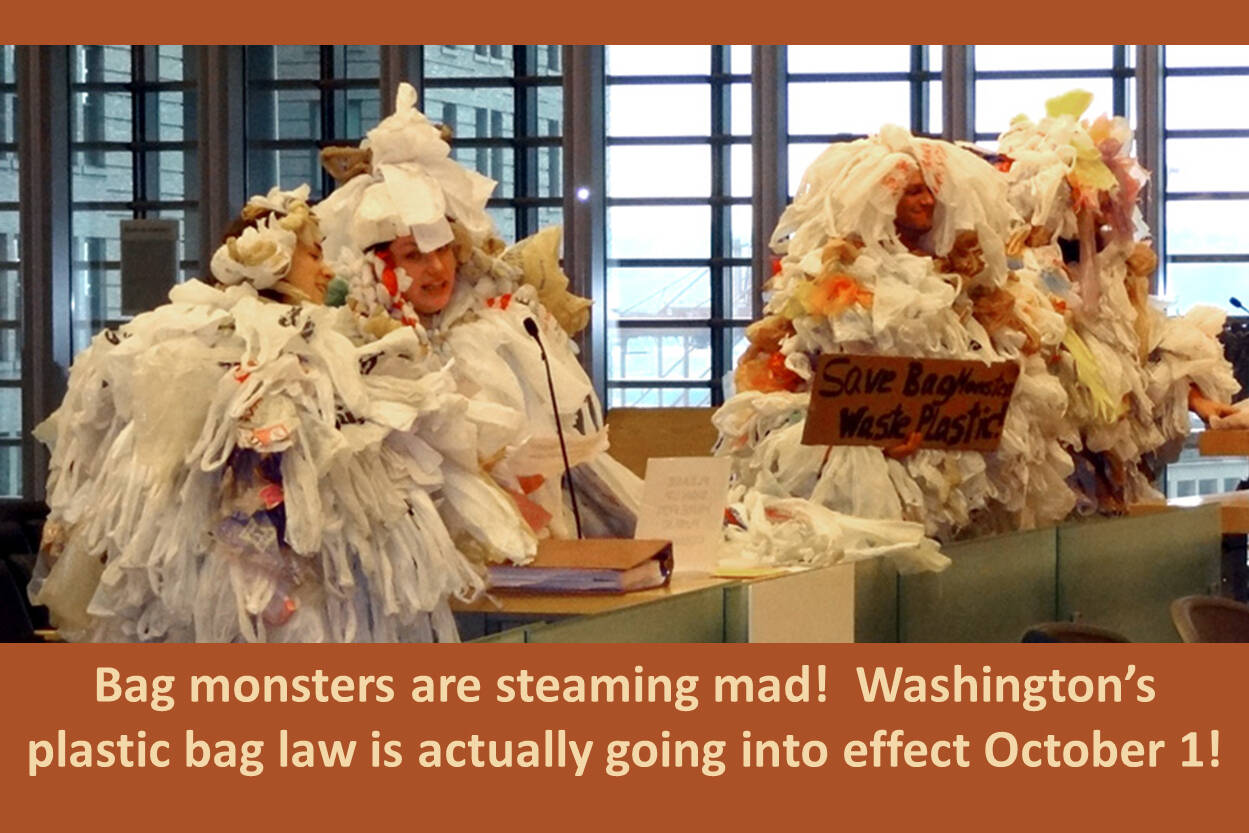Submitted by San Juan County.
Following a delay due to COVID-19, the Washington Plastic Bag Ban (RCW 70A.530) went into effect statewide on Oct. 1. This means that retailers and restaurants throughout the state are prohibited from providing single-use plastic carryout bags. As Washington prepared for the statewide plastic bag ban to take effect, San Juan County continued to be a regional leader in promoting sustainable alternatives.
In 2016, San Juan County passed its own plastic bag ordinance, one of over 37 Washington cities, towns, and counties to have passed their own plastic bag bans since 2009. Despite these measures, every year Washingtonians use over 2 billion single-use plastic bags and the average American uses about 500 bags per year.
With the state plastic bag ban in effect since Oct. 1, it effectively replaces the county’s existing plastic bag ban. The most significant difference for San Juan County residents is that they will see an 8-cent bag charge on their receipt if they do not use a reusable bag and instead use a paper or thick plastic bag provided by the retailer. These bags must meet specific post-consumer recycled content and thickness requirements to be allowed for sale under the new ban.
What are the main changes with the state plastic bag ban versus the county bag ban?
• If a business provides you a carry-out bag, you will be charged 8 cents.
• Thicker, reusable plastic bags must have 20 percent minimum recycled content.
• The bag charge does not apply to those who use vouchers or e-benefits cards to buy food.
Where can I get more information as a customer, retailer, or restaurant owner?
Please visit the “Washington’s Plastic Bag Ban” website at www.ecy.wa.gov/bag-ban to find detailed information on the state’s bag ban.
How can I avoid the carryout bag charge?
• Routinely keep a clean and reusable bag in your vehicle.
• Have more than one reusable bag so that other bags can be washed/cleaned.
• Avoid bags altogether by reloading your items into a basket/cart after checkout and then unloading them directly into bags/containers in your vehicle.
• Some retailers may have spare boxes to use in the place of a bag.
• The bag charge does not apply to customers who are on food vouchers or e-benefit cards (SNAP/FAP/WIC/TANF).
• Reuse the 8-cent thick plastic bag or large paper bag multiple times.
Are reusable bags safe during the COVID19 pandemic and is plastic safer than other materials?
According to the U.S. Food and Drug Administration, “There is no evidence of food or food packaging being associated with transmission of COVID-19.”
While the CDC has clarified that, “touching surfaces is not thought to be the main way the virus spreads,” it is important to always practice good hygiene regardless of the surface or the material. All customers should frequently clean and disinfect their reusable bags as well as their hands.




